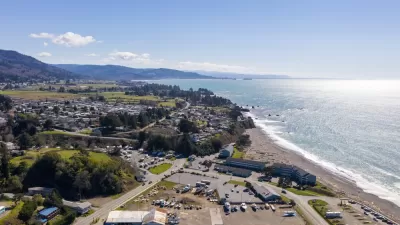The Supreme Court, in two separate opinions, unanimously ruled on June 18 against an Arizona town's sign regulation that denied the placement of a street sign based on its content. At question was a sign directing passers-by to a church service.

"The Supreme Court struck down an Arizona town’s ordinance that treated signs directing people to a small church’s worship services differently than signs with other messages, such as a political candidate’s advertisement," writes Washington Post Supreme Court reporter Robert Barnes.
The [Good News Community Church], which has no permanent home, contended it is being treated differently than politicians, homeowner associations and builders.
The town is fast-growing Gilbert, which had a population of 6,000 in 1980 and an estimated population of 239,000 last year, according to Wikipedia.
"That decision has far-reaching implications for most cities and local governments across the nation, where similar sign regulations will come under renewed scrutiny, experts say," writes Parker Leavitt of The Arizona Republic.
"Local governments across the country view the case as 'one of the most important' to come before the court, according to William Brinton, an authority on sign regulation for local governments who filed a brief in this case on behalf of a large number of municipal government organizations," wrote Nina Totenberg of NPR on Jan. 12, when the Supreme Court heard the case. [Listen here].
Sign regulation is a thorn in the side of local governments. They get sued over these rules all the time, and the lower courts are divided over what constitutional standard to use in evaluating these regulations.
While lawyers for the petitioners viewed the outcome as a victory for religious freedom, "the justices didn't treat it that way," write Richard Wolf and Brad Heath of USA TODAY. "Rather, they said local governments must be able to justify the disparate treatment accorded organizations seeking to spread their messages."
The majority opinion was written by Justice Clarence Thomas, who "said courts must be skeptical of any law that limits speech based on its content, and that sign laws are no exception." A minority opinion, written by Justice Elena Kagan, also ruled against Gilbert, "(b)ut she said the court had gone too far in saying such regulations should receive the court’s most exacting scrutiny," writes Parker.
FULL STORY: Supreme Court rules for church in case against Arizona town’s sign law

Planetizen Federal Action Tracker
A weekly monitor of how Trump’s orders and actions are impacting planners and planning in America.

Restaurant Patios Were a Pandemic Win — Why Were They so Hard to Keep?
Social distancing requirements and changes in travel patterns prompted cities to pilot new uses for street and sidewalk space. Then it got complicated.

Map: Where Senate Republicans Want to Sell Your Public Lands
For public land advocates, the Senate Republicans’ proposal to sell millions of acres of public land in the West is “the biggest fight of their careers.”

Maui's Vacation Rental Debate Turns Ugly
Verbal attacks, misinformation campaigns and fistfights plague a high-stakes debate to convert thousands of vacation rentals into long-term housing.

San Francisco Suspends Traffic Calming Amidst Record Deaths
Citing “a challenging fiscal landscape,” the city will cease the program on the heels of 42 traffic deaths, including 24 pedestrians.

California Homeless Arrests, Citations Spike After Ruling
An investigation reveals that anti-homeless actions increased up to 500% after Grants Pass v. Johnson — even in cities claiming no policy change.
Urban Design for Planners 1: Software Tools
This six-course series explores essential urban design concepts using open source software and equips planners with the tools they need to participate fully in the urban design process.
Planning for Universal Design
Learn the tools for implementing Universal Design in planning regulations.
Heyer Gruel & Associates PA
JM Goldson LLC
Custer County Colorado
City of Camden Redevelopment Agency
City of Astoria
Transportation Research & Education Center (TREC) at Portland State University
Camden Redevelopment Agency
City of Claremont
Municipality of Princeton (NJ)





























